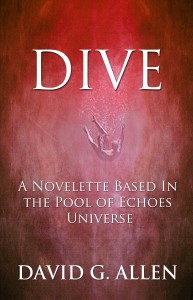Rant on emotions – they may mess with your plans…yet they may be the only reason why you have plans at all.
Continue Reading...
Pen Mightier than Sword by penywise at sxc.hu
What do we love so much about our favorite nonfiction authors?
If you’re anything like me, you read nonfiction to simplify a complicated part of your life, or enjoy a window into someone else’s experiences.
If a writer can do this really well, they have a wonderful career. Each new book builds upon the audience of happy readers who bought in last time, and the writer becomes more influential.
Yet how far does this escalate? Hero worship can tarnish our own self image if we assume that the people who write successful books are so immeasurably better than us:
- That a productivity author has his act together
- That a business author never fails to make a profit
- That a diet author never enjoys an ice cream every now and then
We buy books because these people have the answers, right? They do, and we don’t , so we buy the books hoping to get the answers, and then we’ll have the answers for ourselves. Authors present themselves this way for a reason, and they must.
Here’s an idea you may not have considered.
Are You Smarter Than An Apostle?
Paul of Tarsus was an influential figure in the Bible. Out of the 27 books in the New Testament, 13 of those books ascribe Paul as the writer.
Who would know more about the Bible, and Christianity, than someone who wrote nearly half of the New Testament?
Yet how did he describe himself?
Here is a trustworthy saying that deserves full acceptance: Christ Jesus came into the world to save sinners–of whom I am the worst. – I Timothy 1:15 NIV
What? Paul, you’re supposed to have the answers!
How about something more recent?
Leo Babauta is a NYT Bestselling author. He has done a lot of impressive things, yet at one time he had not done any of them. At one point he had no books, was a smoker, and was 65lbs heavier.
Business?
Tim Ferriss wrote the Four Hour Workweek, a guide to automation and reducing your work hours so you can have a balanced life. How did he start out? By working 14 hours a day.
Money Management?
Robert Kiyosaki of Rich Dad, Poor Dad saw how his biological father made poor decisions with money. Robert knew from observation that he needed to make bold, different decisions if he was arrive where he wanted to be.
I wrote books that centered on trust and relationships. Did this happen because I was the bees’ knees at either subject? Far from it. I struggled with these parts of my life so much that I teamed up with a life coach to co-author these books, all to improve my understanding of trust and relationships.
It’s Not Having the Answers that Starts the Journey
Is it possible that many nonfiction authors write books because they didn’t have any good answers when they started their journey?
This means we shouldn’t idolize anyone, least of all nonfiction writers. If an aspect of life was kicking your butt enough, you’d go on a search to correct it. From there, maybe you would write a book too.
Thanks for the Struggle
When any of the authors I cited above release a book, I’ll probably buy it.
Their struggle may not make it on to the page, but the journey they went through to make their book happen gives me a new appreciation for all nonfiction writing.
I will continue to read nonfiction to gain awareness of where I can improve, and borrow from the years of experience that has been put on paper to help all of us move forward in our own journeys.
Please don’t worship anyone as some great ‘higher than thou’. Nonfiction authors aren’t heroes, but their journey makes them heroic. Just as your journey makes YOU heroic.
Do you have any favorite nonfiction authors? Let me know in the comments…
If our creativity is harmed by thinking like a victim, then why do we keep doing it? What do we gain from doing it? “Quite a lot,” we think
Continue Reading...The zombie craze started a trend – people who never considered how to survive an unexpected catastrophe are now talking about it avidly.
Continue Reading...Interview with blogger and author Jevon Knight on his upcoming work, King Larsen. We also talk about Carnaval, and several other bizarre things.
Continue Reading...We all want to be effective in communicating our message. By taking advantage of trails that other people have already set up, does referring to them make us more effective? Here I analyze some of the risks and try to answer the question.
Continue Reading...Just because theme needs to be invisible to your audience when writing a fiction story – that doesn’t make it less important. Theme is crucial because it helps you answer key questions about your story BEFORE your get started.
Continue Reading...Are you telling yourself a lie? Here is how our stories are used to reinforce false beliefs.
Continue Reading...





